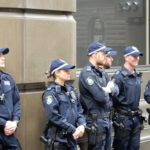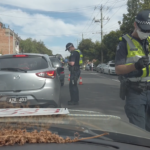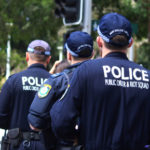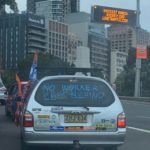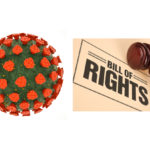Closures of Parliament Are Unwarranted: An Interview With NSWCCL President Nicholas Cowdery
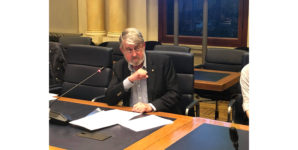
Except for those brief moments when it has been chided during the COVID-19 crisis – think Bondi Beach – the Australian public has done extremely well in completely changing the way it goes about its everyday life, with the implementation of the lockdown measures.
The regulations began in mid-March with bans on outdoor gatherings of over 500, and indoor gatherings of under 100. But, then suggested restrictions suddenly morphed into orders, which were subsequently termed laws, with $1,000 on-the-spot fines applying and even six months prison time.
And in amongst the rollout of prohibitions, penalties, and stimulus packages, the Morrison government saw fit to close down federal parliament for months on end. This was sold to the public as a necessary safety measure, at the same time government was recommending schools stay open.
However, as the initial pandemic shock began to clear, the opposition, judicial officers and civil liberties advocates began to question whether the removal of parliamentary oversight at the time of an unprecedented health crisis was really the correct avenue to take.
Policing a health emergency
Meanwhile, in NSW, the Berejiklian government decided to close down state parliament on the day following the closure of the federal chambers, which seemed to be part and parcel of the regular COVID-19 pandemic response by that stage.
Since NSW opposition, minor party and independent MPs have all been sent home to hibernate for the winter, premier Gladys Berejiklian has handed over the running of the state’s health emergency response to NSW police commissioner Mick Fuller.
On 30 May, NSW health minister Brad Hazzard signed off on the Public Health (COVID-19 Restrictions on Gathering and Movement) Order 2020, which banned people from being outdoors without a reasonable excuse, and if they are outside, they can only be with one other person.
And unsurprisingly, the policing of these rather vague rules has been haphazard, with numerous reports of people sitting on public benches being threatened with fines. While the general understanding of what outdoor activities are still permitted is inconsistent at best.
Protecting freedoms
Last week, as federal parliament reconvened to pass a wage subsidy package, the senate unanimously agreed to establish the Select Committee on COVID-19, which has been charged with monitoring and reporting on government actions during the pandemic.
The NSW Council for Civil Liberties (NSWCCL) was calling for the launch of the senate committee in order to maintain at least some democratic process during the crisis. And the council has been keeping its usual keen watch over developments affecting the freedoms of Australian citizens.
Sydney Criminal Lawyers spoke to NSWCCL president Nicholas Cowdery about the need to increase parliamentary scrutiny during a crisis, rather than eradicate it, as well as the issues around the gaping holes in the emergency provisions that are leading to the ambiguities in their enforcement.
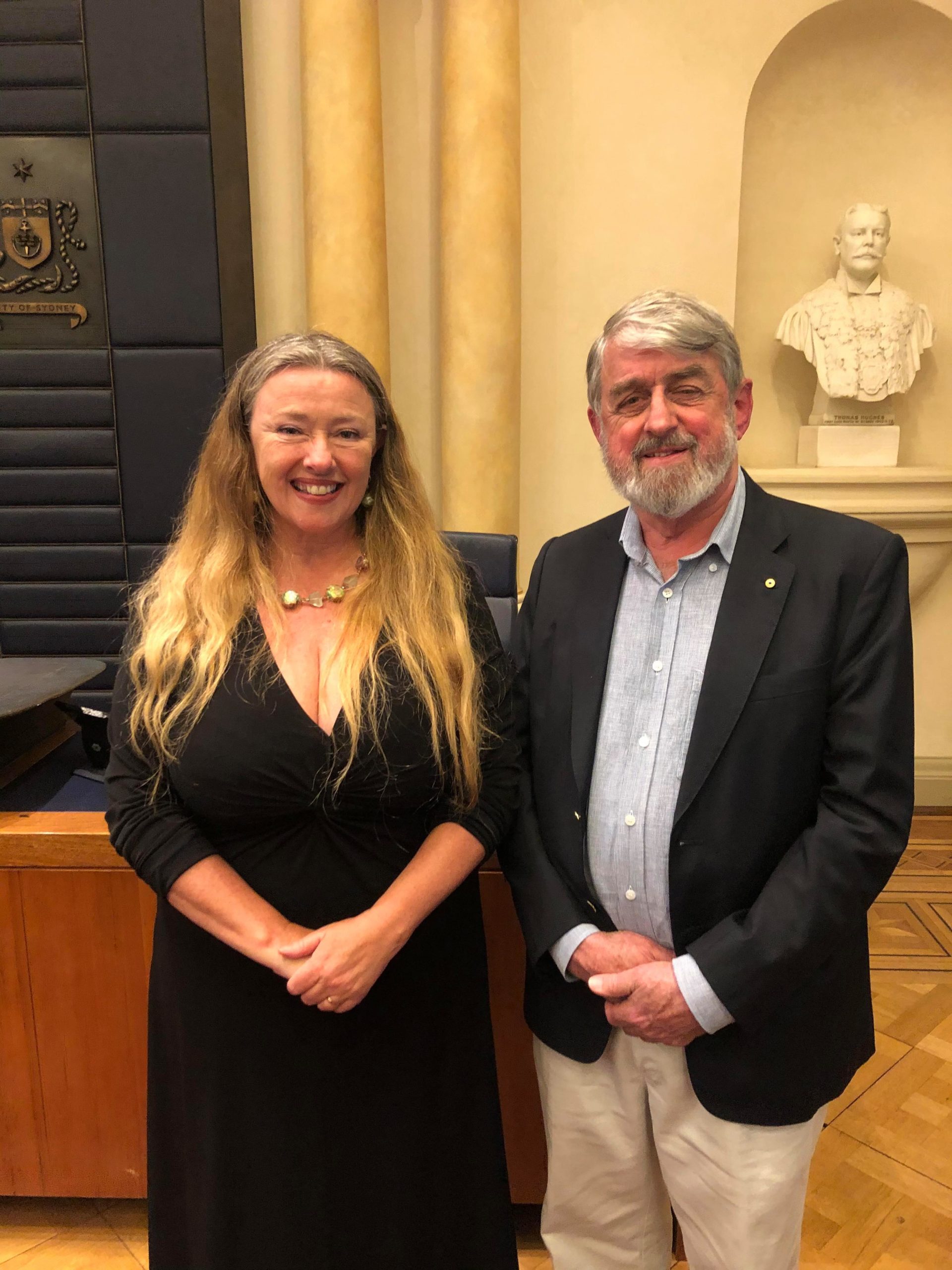
Firstly, both the Australian and NSW parliaments were closed down three weeks ago due to the COVID-19 pandemic. And these shutdowns are set to continue for months on end.
You’ve warned that these closures are “unacceptable and dangerous for democracy”. Mr Cowdery, what are your concerns about government operating in this manner?
At times of emergency, when the executive becomes more active in involving itself in ordinary citizens’ affairs, the need for parliamentary scrutiny doesn’t get less, it increases.
This is because there needs to be transparency and accountability of the authorities to the people. And that accountability is given through the parliament.
Now, in addition to the Commonwealth parliament, which is closed until the 11 August, the NSW parliament is closed until 15 September. These closures of parliament are completely unwarranted and contrary to the public interest.
Even in the times of the two world wars, the Australian parliament did not shut down. Indeed, during the Second World War, there was a change of government through an election.
So, the need for democracy to be maintained, and the need for the people to hold government to account, becomes, in our view, even greater in times of emergency than it normally is.
And in addition to that, the government is allocating huge amounts of money to various emergency programs.
Now, when money is sloshing about like that, the opportunities for misconduct become much greater, and therefore, there needs to be greater scrutiny of the allocation of funds and the expenditure of funds, again, in the public interest.
Two days after the PM shutdown federal parliament, he went on to establish the National COVID-19 Coordination Commission (NCCC). This is a body established to help the government coordinate the economy during the pandemic.
In your opinion, is there an issue with establishing such a body, whilst having sent home all non-Coalition federal politicians, who’ve been publicly elected and might have played a role in this newly established body?
Any body like that would have had stronger foundations if it was nonpartisan – if it was a cross-party agreement to establish such a body.
We don’t seem to have heard a lot about what it’s doing. So, again, if we had parliament sitting there might be the opportunity to monitor the activities of the commission and be satisfied that it is fulfilling its mandate.
During a special sitting day of federal parliament last Wednesday, the Select Committee on COVID-19 was established to scrutinise the government’s pandemic response and present a report on it by the end of June.
It’s comprised of opposition and minor party MPs and one independent.
Is this an adequate enough measure to hold government to account during this crisis whilst parliament’s shut down?
Speaking on behalf of the Council for Civil Liberties, we consider that committee is adequate, and that its composition is appropriate for ensuring a level of independence and the scrutiny it will bring to bear.
We support the establishment of that committee and its activity at this time. You will find a statement on the CCL website in support of its establishment, which we think is the least that could be done by the federal parliament.
NSW Greens MLC David Shoebridge established a similar parliamentary oversight committee for this state.
However, it was told it shouldn’t undertake public hearings until the end of May, because the Berejiklian government didn’t want any interference in its pandemic response before then.
What do you think about this response from the state government in regard to what’s a very limited form of oversight?
Impropriety does not take a holiday. So, if there was going to be a body providing oversight of government action that body should be operating from the time that it commences.
Admittedly, a gap until the end of May is not a long time, but who knows what government action will be required in that time and what level of oversight might be considered appropriate.
So, it is an unnecessary delay in the activities of the committee.
Meanwhile, in this state, NSW police has been given a huge expansion of powers in relation to enforcing quite extreme prohibitions that have been placed upon citizens’ everyday lives.
And the NSW police commissioner has been handed control of the state COVID-19 response. What are your thoughts on the greater reach the NSW Police Force has at present?
These measures, I’m sure, have been introduced with the very best of intentions. The best medical evidence and opinion supports the idea of personal separation as a means of controlling and perhaps, ultimately, removing the virus.
The measures that have been introduced are scientifically supported, but there are some real issues about the detail and the enforcement of the measures.
The CCL has been looking at three areas and publishing information on its website and responding to queries about, first of all, what is allowed and what are we allowed to do.
Secondly, the level of enforcement of those orders. Thirdly, the conditions of detention of people who have been compulsorily quarantined when they return to Australia.
And fourthly, one that hasn’t been fully argued yet, which is the issue of the monitoring of mobile devices in order to enforce orders against the movement of people.
These are quite important issues from a rights and civil liberties point of view. And there are some areas of concern.
The concerns arise because these restrictions were produced hastily as they needed to be. This meant that not all of the implications of the restrictions were properly considered and taken into account.
The police have been left with the enforcement of restrictions that are not clearly defined and that is going to lead to inconsistency of enforcement.
I have some sympathy for the police. These are emergency measures. They were introduced suddenly. They haven’t had an opportunity for training or for trialling any of these provisions.
And they’ve had to adapt and do their best. Even the police commissioner has said, sometimes they make decisions that are really not supportable.
If you go to the restrictions on gatherings and movement order, which was promulgated on 30 March, there are some real issues of interpretation around what people are allowed to do in the community.
The order directs that a person cannot leave their place of residence without a reasonable excuse. Now, this is an order that’s directed at keeping people at home. But, that’s a very easy thing to say very quickly, without thinking of the ramifications.
For example, take, “leave the person’s place of residence”. If the person habitually lives in two places – maybe one place during the week and once place during the weekend – which is the person’s place of residence? And can they move between them?
We’ve seen the example of this with the minister who has resigned, because he was fined for moving between two places of residence that he maintained.
In a matter of statutory interpretation of “the person’s place of residence”, does the singular include the plural? It usually does in statutory interpretation. So, that’s another area of doubt.
What they do in the order is give examples of a reasonable excuse. They don’t say that these are the only reasonable excuses.
So, anybody enforcing the orders is going to have to consider whether a reasonable excuse has been established, and that begins at the police enforcement level and it might carry through to a court if the fine is challenged. That’s when the courts come back to sitting, of course.
But, they give examples of reasonable excuses: obtaining food or other goods and services, traveling for the purposes of work or education, exercise, or medical and caring reasons.
Now, those are only examples. And they go on to say later that holidaying in regional NSW is not a reasonable excuse. So, there’s a lot of ambiguity and uncertainty in the restrictions that are actually in play.
One example of what a reasonable excuse can be is just simply the word “exercise”. Now, if you leave the home and walk or run around the block, you would probably say that’s leaving the residence for exercise.
But, if you get in your car and drive half an hour to a beach or a park, and then go walking or swimming, is that leaving your house for reasons involving exercise? It probably is. But, where do you draw the line?
Is it alright to drive to Thredbo to exercise by walking up Mount Kosciusko? Probably not. But, these are some of the ambiguities that arise.
And there’s some clear evidence that some of the enforcement has been pretty heavy-handed.
If somebody goes to a park to do some walking or running, and then they sit on a park bench afterwards to recover, police can come along to ask why they’re sitting on the park bench, because they’re not exercising. And technically, they can issue a fine. In some cases, they have.
We have a lot of uncertainty about the provisions that have actually been imposed. And that doesn’t help. People need to have certainty.
People need to know the enforcement is going to be clear in order for them to accept restrictions on their activities. And we have come a long way short of that in this particular case.
And lastly, Mr Cowdery, there have been concerns raised around whether there might be a carry over effect from this lack of oversight and expansion of police powers following the crisis in regard to restrictions taking on a more permanent basis.
Does the NSWCCL have concerns around this?
Yes, we are concerned. And we make the point that for any emergency provisions that are brought in that restrict people’s liberties, those measures should be necessary.
They should be reasonable. They should be appropriately applied. And they should be limited.
They should be limited either with time – which is a bit difficult during this emergency, because we can’t foresee how exactly it is going to play out – or they should be tied to the specific emergency that’s being addressed.
Having said that, the orders are in place for a period of 90 days, which is the default maximum period for orders of this kind.
They can be extended of course. But, at least in the first instance, they apply from 90 days from roughly the end of March.
So, it remains to be seen, how the virus pandemic progresses, and whether there is a need for restrictions to be extended. And if not, they should lapse at the end of the period they have been imposed for.



